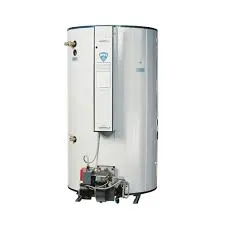- Afrikaans
- Albanian
- Amharic
- Arabic
- Armenian
- Azerbaijani
- Basque
- Belarusian
- Bengali
- Bosnian
- Bulgarian
- Catalan
- Cebuano
- China
- China (Taiwan)
- Corsican
- Croatian
- Czech
- Danish
- Dutch
- English
- Esperanto
- Estonian
- Finnish
- French
- Frisian
- Galician
- Georgian
- German
- Greek
- Gujarati
- Haitian Creole
- hausa
- hawaiian
- Hebrew
- Hindi
- Miao
- Hungarian
- Icelandic
- igbo
- Indonesian
- irish
- Italian
- Japanese
- Javanese
- Kannada
- kazakh
- Khmer
- Rwandese
- Korean
- Kurdish
- Kyrgyz
- Lao
- Latin
- Latvian
- Lithuanian
- Luxembourgish
- Macedonian
- Malgashi
- Malay
- Malayalam
- Maltese
- Maori
- Marathi
- Mongolian
- Myanmar
- Nepali
- Norwegian
- Norwegian
- Occitan
- Pashto
- Persian
- Polish
- Portuguese
- Punjabi
- Romanian
- Russian
- Samoan
- Scottish Gaelic
- Serbian
- Sesotho
- Shona
- Sindhi
- Sinhala
- Slovak
- Slovenian
- Somali
- Spanish
- Sundanese
- Swahili
- Swedish
- Tagalog
- Tajik
- Tamil
- Tatar
- Telugu
- Thai
- Turkish
- Turkmen
- Ukrainian
- Urdu
- Uighur
- Uzbek
- Vietnamese
- Welsh
- Bantu
- Yiddish
- Yoruba
- Zulu
Aug . 11, 2024 08:10 Back to list
Suppliers of EN877 Gray Cast Iron Fittings for Reliable and Durable Plumbing Solutions
A Comprehensive Overview of EN877 Gray Cast Iron Fitting Casting Suppliers
In the realm of construction and plumbing, the importance of reliable fittings cannot be overstated. EN877 gray cast iron fittings are a vital component in various systems, particularly in drainage, waste, and vent applications. As the demand for these fittings continues to grow, so does the need for reputable suppliers who can provide quality products. This article explores the significance of EN877 standards, the characteristics of gray cast iron, and what to consider when selecting a supplier.
Understanding EN877 Standards
EN877 is a European standard that specifies the requirements for cast iron fittings used in drainage and sewage systems. Compliance with this standard ensures that the fittings are durable, capable of withstanding various environmental conditions, and suitable for both above-ground and underground applications. As a result, suppliers that offer EN877 compliant products are essential for contractors and builders who prioritize quality and safety in their projects.
Characteristics of Gray Cast Iron
Gray cast iron is favored for its excellent casting properties, high wear resistance, and good machinability. Its microstructure, predominantly consisting of graphite flakes, gives it superior strength compared to other materials. This makes gray cast iron an ideal choice for fittings that must bear heavy loads and resist corrosion over time. Additionally, the material's thermal conductivity and acoustic dampening properties enhance its desirability in construction and plumbing projects.
Selecting the Right Supplier
When looking for EN877 gray cast iron fitting casting suppliers, there are several factors to consider
en877 gray cast iron fitting casting suppliers

1. Certification and Compliance Choose suppliers that offer products certified to EN877 standards. This signifies that the fittings meet specific performance and safety criteria, offering peace of mind for compliance in construction projects.
2. Quality Assurance A reliable supplier should have stringent quality control processes. Look for suppliers that perform rigorous testing of their products, ensuring they meet the necessary strength, stability, and durability requirements.
3. Range of Products Some suppliers may specialize in specific types of fittings, while others provide a wider selection. It's beneficial to choose a supplier that offers a comprehensive range of products, including various sizes and configurations of EN877 fittings, to meet diverse project needs.
4. Reputation and Experience Consider suppliers with a solid reputation in the industry. Longevity and experience often indicate reliability and a proven track record of delivering high-quality products. Customer testimonials and case studies can provide insight into a supplier's performance and service quality.
5. Customer Support A good supplier will have knowledgeable customer support staff who can assist with product selection, technical inquiries, and after-sale services. Strong customer support can streamline the purchasing process and enhance the overall experience.
6. Logistics and Delivery Timely delivery is crucial in construction projects to avoid delays. Assess the supplier's logistics capabilities to ensure they can meet your delivery timelines. Additionally, inquire about their packaging practices to prevent damage during transit.
Conclusion
EN877 gray cast iron fittings are indispensable in modern construction and plumbing applications. Choosing the right supplier is critical to ensuring that these fittings meet the necessary standards for safety and durability. By considering factors such as certification, quality assurance, product range, reputation, customer support, and logistics, buyers can make informed decisions that lead to successful project outcomes. As the demand for these fittings continues to rise, partnering with a reliable supplier will not only enhance project efficiency but also contribute to the long-term performance and safety of installed systems.
-
8mm Thin-Walled Cast Steel Manhole Cover Pallet Bottom Ring | Durable
NewsAug.04,2025
-
Premium Cast Iron Water Main Pipe: Durable, Corrosion-Resistant
NewsAug.03,2025
-
Durable Cast Iron Water Mains | AI-Optimized Systems
NewsAug.02,2025
-
High-Efficiency Propane Boiler for Baseboard Heat | Save Energy
NewsAug.01,2025
-
Premium Source Suppliers for Various Gray Iron Castings
NewsJul.31,2025
-
Durable Cast Iron Water Main Pipes | Long-Lasting
NewsJul.31,2025


